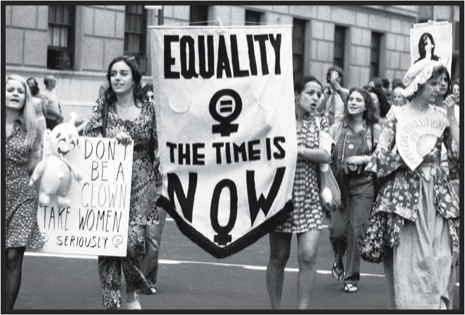
Symposium Introduction
By Stephanie Coontz
Co-Chair and Director of Research and Public Education
Council on Contemporary Families
Phone: 360-352-8117
Email: coontzs@msn.com
In 1973 – less than 40 years ago — the Supreme Court ruled that sex-segregated employment ads were illegal. The next two decades saw massive, rapid action in eradicating old laws and prejudices. But now three researchers argue that progress toward gender equality has slowed or even stalled since the early 1990s.
In an online symposium organized by the Council on Contemporary Families in time for International Women’s Day, David A. Cotter, Joan M. Hermsen and Reeve Vanneman present their discussion paper “Is the Gender Revolution Over?” and CCF fellows from around the United States offer a series of responses that add to this discussion.
So, what do Cotter, Hermsen and Vanneman see as the status of women and the gender revolution? Key findings include:
- A slowing of women’s entry into new occupations and positions. Barriers to women’s opportunities in traditionally male jobs have declined since the 1960s-for example, the 1970s and 1980s saw a 20 percentage point increase in women managers. Yet during the next two decades there was only a five percent increase in women’s representation in management. Working-class occupations are nearly as segregated today as they were in 1950 and have become more segregated since 1990.
- More educational degrees for women, but continued segregation of college majors. In some fields, women have even lost ground since the mid 1980s. In 1970 only 14 percent of computer and information sciences degrees were granted to women. By 1985 women’s share had increased almost threefold, to 37 percent. But by 2008 women accounted for only 18percent of degrees in the field.
- Some signs that the rapid changes in traditional attitudes toward women between 1977 and the mid 1990s have come to an end. From 1977 to 1996, the percentage of people who believe women are less suited to politics than men fell by half, to around 22 percent. However, despite the attention to the campaigns of Hillary Clinton and Sarah Palin, there’s been no change over the past two decades, and almost one-fourth of Americans still hold this view. In addition, since 1994, there has been some slippage in support for egalitarian marital arrangements.
Cotter and his colleagues conclude that “the gender revolution has not been reversed,” but “it is stalled on several fronts – and there is still a long way to go.”
COHEN, GALINSKY, JONES: LOOK AT THE LABOR MARKET
University of Maryland demographer Philip Cohen elaborates on the minimal progress women have made in management, in “What if Women Were in Charge?” and points to the long-run implications for working women. Work and Family Institute President Ellen Galinsky argues that men’s support for more egalitarian family practices has not stalled, in “Gender Evolution Among Employed Men.” She suggests, however, that the transformation of family life may yet stall if we do not abandon our work-centric definitions of masculinity and develop more family-friendly workplaces.
Labor market researcher Janelle Jones of the Center for Economic and Policy Research notes in “Divergent Revolutions for Blacks, Latinos, and Whites” that there is a smaller gender wage gap among African Americans and Latinos than among whites. But she notes that this is partly because men have been losing ground in the workforce.
MORE RESPONSES: GAINS IN SOME AREAS, STALLS IN OTHERS
In “No Stall in the Sexual Revolution,” Indiana University sociologist Brian Powell link draws on his research on American attitudes about family diversity to document the remarkable expansion of support for gay and lesbian couples and families during the past decade.
But that leaves two other scholars–Paula England from New York University and Barbara Risman from University of Illinois-Chicago-presenting different viewpoints on what has and has not changed. In “In Sex and Romance, Not So Much Gender Revolution,” CCF senior fellow Paula England notes several trends in personal behavior that remain remarkably resistant to change. But CCF executive officer Barbara Risman is more impressed by the radical transformation in girls’ self-confidence in “The Beat Goes On.”
In “Revolutions Seldom Revolutionize Everything,” CCF co-chair and Evergreen State College family historian Stephanie Coontz also sees the hangovers from the past that England and Risman discuss. She goes on to explain that the movement for gender equity has become more complicated now that sexism is no longer a monolithic system, imposed by outright exclusion and legal enforcement of inequality. In their rejoinder Cotter et al concede that a real revolution has occurred but note that counter-revolutions, or at least reversals of gains, are not uncommon.
Browse the Gender Revolution Symposium
Follow the links on the top right menu.
Download Full Symposium
[button link=”https://sites.utexas.edu/contemporaryfamilies/files/2014/02/2012_Symposium_Gender-revolution.pdf color=”red” target=”new” size=”default” icon_before=”pdf”]Download as a PDF [/button] [button link=”https://contemporaryfamilies.org/wp-content/uploads/2014/02/2012_Symposium_Gender-revolution.docx” color=”primary” target=”_self” size=”default” title=”Download DOC” icon_before=”doc”]Download as a Word Document[/button] [divider style=”shadow”]About CCF
The Council on Contemporary Families is a non-profit, non-partisan organization dedicated to providing the press and public with the latest research and best-practice findings about American families. Our members include demographers, economists, family therapists, historians, political scientists, psychologists, social workers, sociologists, as well as other family social scientists and practitioners.
Founded in 1996 and now based in the School of Education and Human Development at the University of Miami, the Council’s mission is to enhance the national understanding of how and why contemporary families are changing, what needs and challenges they face, and how these needs can best be met. To fulfill that mission, the Council holds annual conferences, open to the public, and issues periodic briefing papers and fact sheets.
